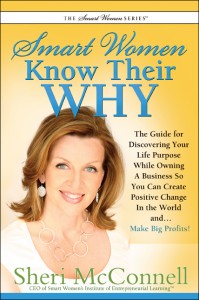Memoir: A record of events written by a person having intimate knowledge of them and based on personal observation.
From Dictionary.com. Dictionary.com Unabridged. Random House, Inc. http://dictionary.reference.com/browse/memoir (accessed: January 12, 2010).
Every time I browse through the Amazon.com reviews of a memoir, I notice that some of the amateur reviewers seem to have a grave misunderstanding of the definition of the literary form. Rather than realizing that a memoir contains the selected personal memories of a single person, some reviewers seem compelled to point out–often in a snide or superior tone–that the memoir they are reviewing is not a comprehensive study of the people, places, or events that touched the author’s life.
In one particularly amusing review of Frances Mayes’ Under the Tuscan Sun, an anonymous reviewer rants that “There are no poor people in Mayes’ book, nobody unemployed, nobody mentally ill or physically disabled. No word on the tragic swathe that heroin and cocaine addiction has cut through even the smallest and most remote Italian towns. Nothing about the intractable problem of illegal immigrants flooding the Italian peninsula from Eastern Europe and Africa…”.
It makes me wonder exactly what this reader thinks a memoir is supposed to be. Mayes was writing a memoir about the purchase and restoration of her home in Italy, not a textbook on modern social conditions in Tuscany.
In choosing to read a memoir, the reader elects to walk down memory lane with the author, seeing people, places, and events from the writer’s perspective. Unlike an autobiography (a history of a person’s life written or told by that person), which usually provides a more linear and comprehensive narrative, a memoir is deeply personal, and often focuses a single theme or time period such as Isak Dinesen’s years on her farm in Out of Africa or Frank McCourt’s childhood in Angela’s Ashes. The author chooses a theme and mood and selects the events that will convey the memory. Although the reader of a memoir will often come away with a strong sense of personality and place, it will be shaped by what the author chose to share, chose to leave out, and his or her skill in shaping prose.
One popular memoir put-down often includes the offering of an alternate recommendation for something to read if you want to “know more about the REAL” person, place, or event. The implication usually seems to be that if a memoir isn’t dark, ugly, or negative, or if the writer has a different perspective than the reader, the memoir can’t be true or worthy. The reality is that good things do happen, and many readers find sunlight, travel, humor, and good conversation much more engaging than peering into the dark closets and dank basements of another’s life.
I don’t advocate hagiography in place of biography, and I believe that dark, tragic tales have their place– we need King Lear and Jean Valjean just as much as we need Pratchett’s Vimes. However, it must be either ignorance or hubris that causes a reviewer to reject a memoir on the grounds that it doesn’t reveal the “real” person, place, or event.
I’ve been a caregiver for my grandparents for nearly twenty years, and if I wrote a memor about the experience, it could certainly be focused on frustration and depressing scenes of diapers, dementia, and drool. But because those aren’t the things I find interesting or choose to remember about my sweet grandparents, my hypothetical memoir would focus instead on the funny moments, the poignant times when another ability disappeared and we were able to get through it with love and laughter, despite grief for the losses.
Would my memoir provide a look at what caregiving is “really like”? Yes and no. On one hand, yes– it would share what caregiving has been (and is) like for our family. On the other hand, no– it wouldn’t address what caregiving is like for other people in other places. A memoir is one writer’s memories, selected and shared. If you want to go along for the ride, read memoir for what it is, and don’t critique it for not being what it never pretended to be.
1.18.09- Addendum: When Frank McCourt died in 2009, several distinguished contributors offered commentaries on McCourt’s impact on the art of memoir. Read Memoirs and McCourt on the New York Times “Room for Debate” blog.
Here’s a quote from Billy Collins, former poet laureate of the United States, that sums it up nicely: “McCourt fully recognized that what a story is about depends on who is telling it.”
 I read quite a few business books, and over the years I’ve found that there’s a common denominator in the ones that stick with me. These are the books in which the author digs deep, gets personal, and shares what’s really worked and what hasn’t. Sheri McConnell’s latest book, Smart Women Know Their Why: The Guide for Discovering Your Life Purpose While Owning a Business So You Can Create Positive Change In the World (and Make Big Profits!, is just such a book.
I read quite a few business books, and over the years I’ve found that there’s a common denominator in the ones that stick with me. These are the books in which the author digs deep, gets personal, and shares what’s really worked and what hasn’t. Sheri McConnell’s latest book, Smart Women Know Their Why: The Guide for Discovering Your Life Purpose While Owning a Business So You Can Create Positive Change In the World (and Make Big Profits!, is just such a book.